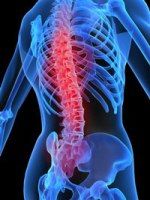MSU researchers discover potential genetic factor in eating disorders
Advertisement
For the first time, scientists have discovered a possible biological culprit in the development of eating disorders during puberty: a type of estrogen called estradiol. The groundbreaking pilot study led by Michigan State University found that influence of one's genes on eating disorder symptoms was much greater in pubertal girls with higher levels of estradiol than pubertal girls with lower levels of estradiol. The study appears in the journal Psychological medicine.
Lead investigator Kelly Klump, MSU associate professor of psychology, said previous research had established that eating disorders are influenced by both genetic and environmental factors once a girl hits puberty. The underlying effects of the genes, however, were unknown.
"The reason we see an increase in genetic influences during puberty is that the genes for disordered eating are essentially getting switched on during that time," said Klump. "This research was trying to figure out why. What's turning on the genes during puberty? And what we found is that increases in estradiol apparently are activating genetic risk for eating disorders."
Estradiol is the predominant form of estrogen in females and is responsible for the growth of reproductive organs and also influences other organs including bones. Klump noted that researchers don't yet know which genes are being switched on by estradiol. Further, she said a larger study is needed to confirm the results of the MSU-led research. But knowing that estradiol likely plays a role in the development of eating disorders could ultimately open the window to new treatments, said Klump, past president of the Academy of Eating Disorders.
In addition, she said, prevention efforts could be geared toward those girls who not only are in high-risk environmental contexts (such as weight-focused sports), but also those with genetic risks such as a family history of eating disorders.
Most read news
Other news from the department science

Get the life science industry in your inbox
By submitting this form you agree that LUMITOS AG will send you the newsletter(s) selected above by email. Your data will not be passed on to third parties. Your data will be stored and processed in accordance with our data protection regulations. LUMITOS may contact you by email for the purpose of advertising or market and opinion surveys. You can revoke your consent at any time without giving reasons to LUMITOS AG, Ernst-Augustin-Str. 2, 12489 Berlin, Germany or by e-mail at revoke@lumitos.com with effect for the future. In addition, each email contains a link to unsubscribe from the corresponding newsletter.

























































